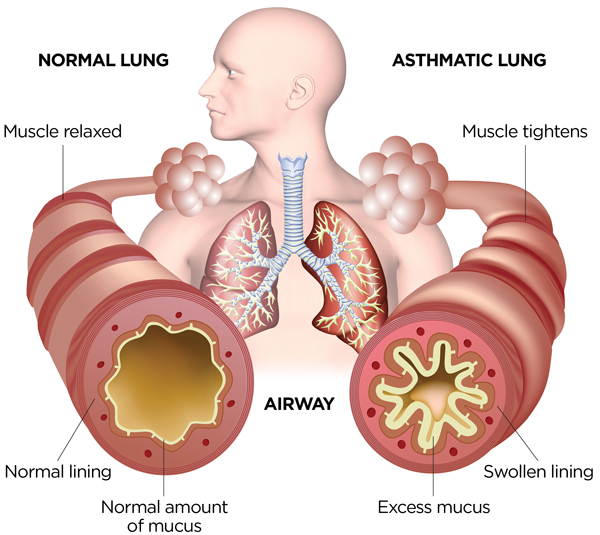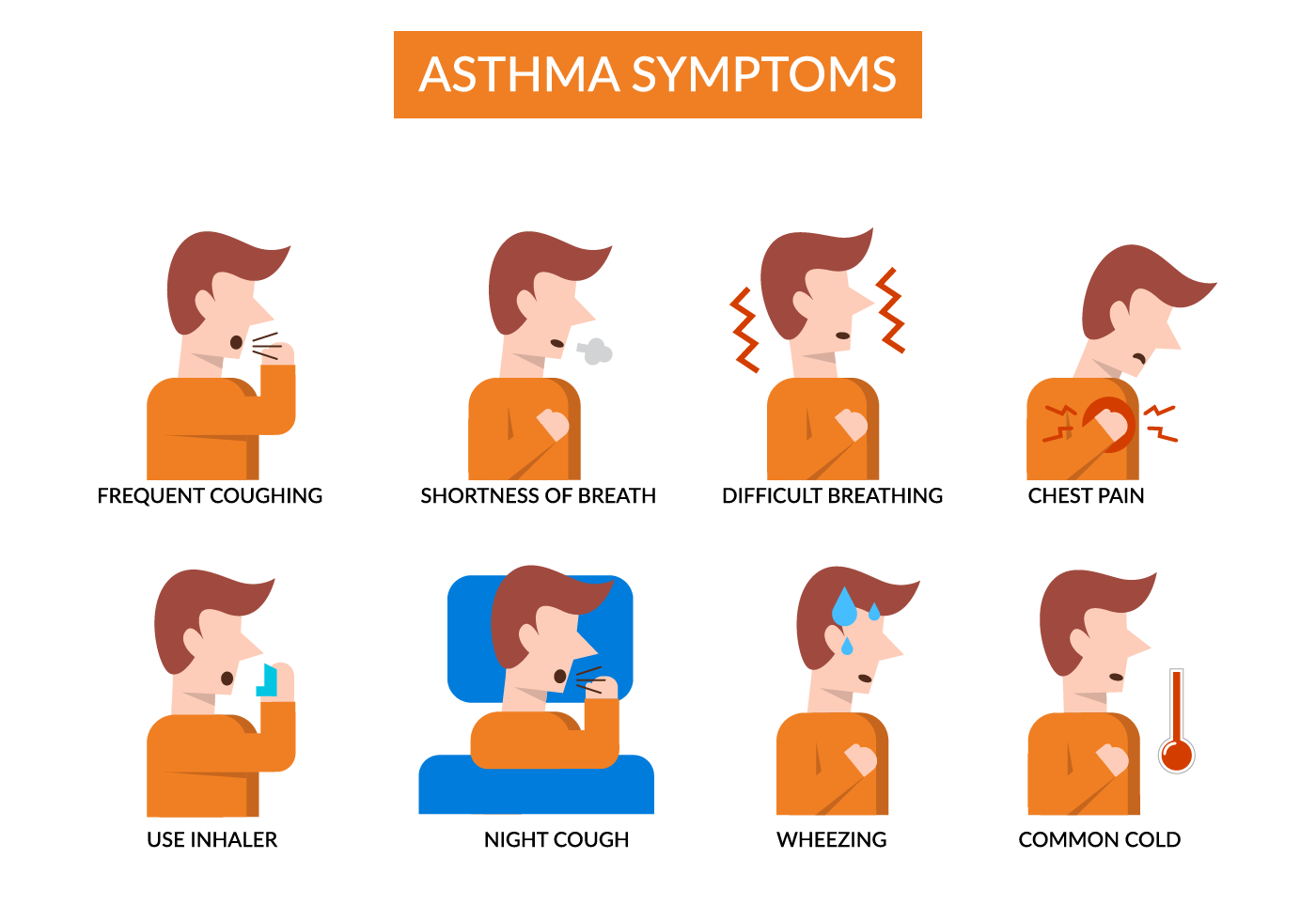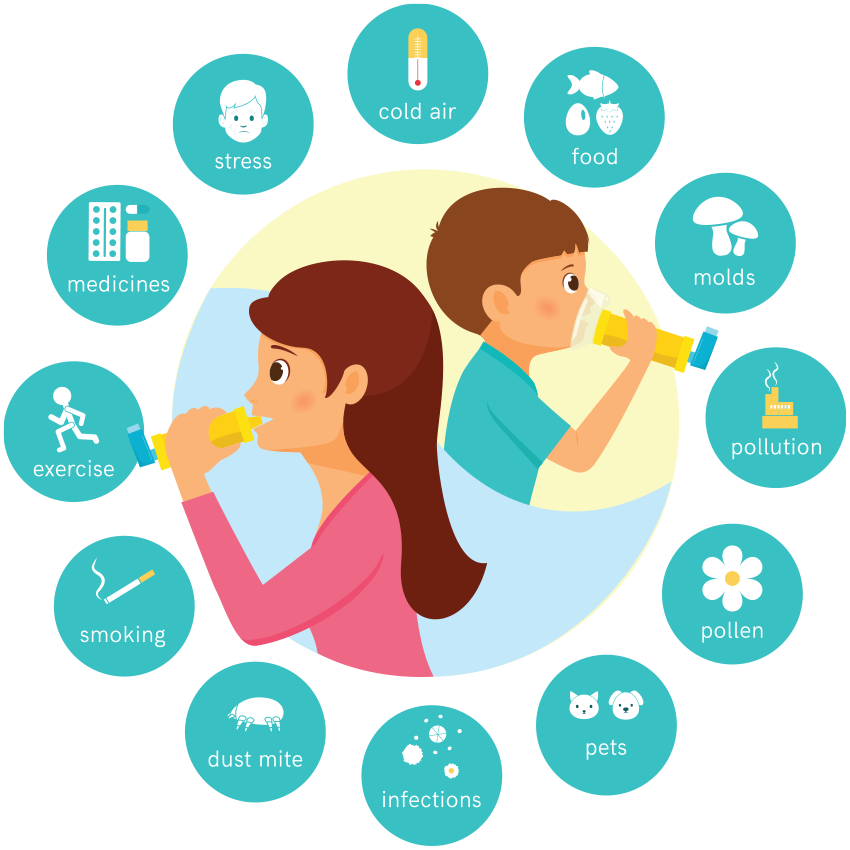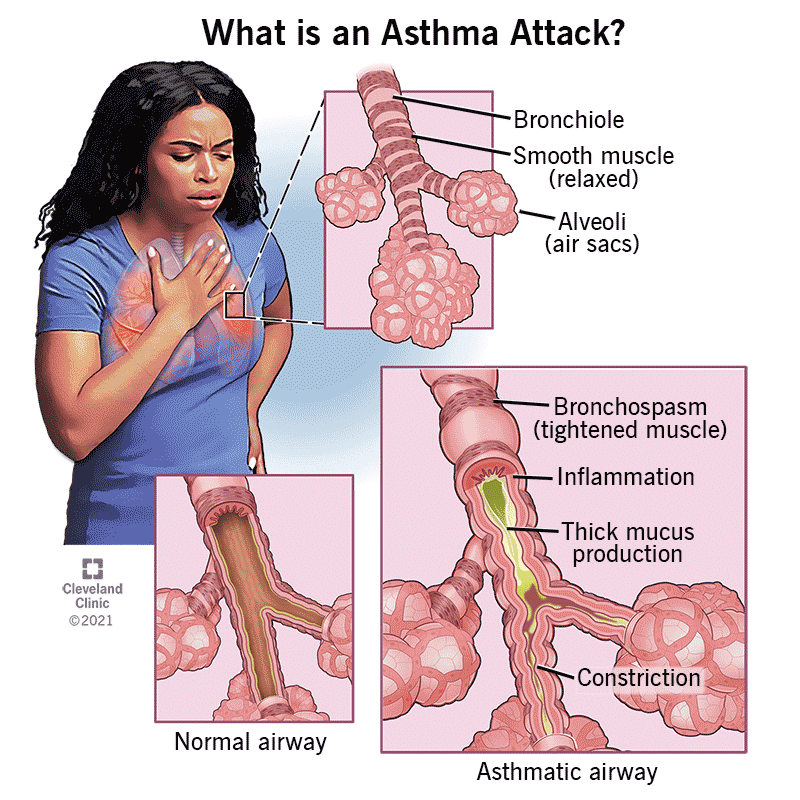FAQ
Most frequent questions and answers
An asthma action plan is a written document that outlines personalized guidelines for managing asthma, including daily medications, recognizing worsening symptoms, and steps to take during an asthma attack. It helps patients and caregivers to proactively handle asthma and respond appropriately to changing conditions.
While it may not be entirely preventable, the risk of developing asthma can be reduced through measures such as avoiding exposure to tobacco smoke, air pollutants, and allergens, maintaining good indoor air quality, and promoting a healthy lifestyle.
As of now, there is no cure for asthma. However, it can be effectively managed with appropriate medical treatment and lifestyle modifications. With proper management, individuals can lead a relatively symptom-free life.
Uncontrolled asthma can lead to long-term complications, including airway remodeling, decreased lung function, and chronic respiratory symptoms. Regular monitoring and proper management are essential to minimize these effects.
Asthma exacerbations, also known as asthma attacks, refer to acute worsening of asthma symptoms, often triggered by exposure to allergens or other irritants. These episodes require prompt medical attention and intervention.
Asthma can be classified into various subtypes based on triggers and symptoms. Common types include allergic asthma (triggered by allergens), non-allergic asthma (triggered by non-allergenic factors), occupational asthma (triggered by workplace substances), and exercise-induced asthma (triggered by physical activity).
Asthma Allergy Facts: Understanding Triggers and Management
Discover how to manage asthma allergies effectively by learning about common triggers and following a personalized action plan. Improve your quality of life by exploring essential facts about this respiratory condition caused by allergens.

Prevalence
Asthma is a common chronic respiratory condition that affects people of all ages and can develop at any stage of life. According to the World Health Organization (WHO), approximately 235 million people worldwide suffer from asthma, making it a significant global health concern.

Airway Inflammation
Asthma is caused by inflamed airways triggered by allergens, infections, cold air, or exercise, causing breathing difficulty and symptoms.

Symptoms
Asthma can cause wheezing, coughing (especially at night or early morning), shortness of breath, and chest tightness. Severity varies.
Triggers
“Asthma attacks may be triggered by allergens, respiratory infections, air pollution, tobacco smoke, cold air, physical exertion, and emotional stress.”

Treatment and Management
Manage asthma with long-term and quick-relief meds, as well as lifestyle changes. Use an asthma action plan for symptom management and emergencies.

